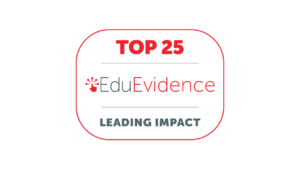If you’ve ever watched your child’s face light up at the turn of a page or heard them giggle at a silly character in a story, you’ve seen the magic of reading in action. But did you know that those moments are doing much more than entertaining your child? They’re laying the foundation for a lifetime of learning, connection, and growth.
As parents, we’re always looking for ways to give our kids the best possible start in life. It turns out that one of the simplest and most powerful tools we have is right in front of us: books. Let’s explore why reading matters so much and how even a little bit each day can make a world of difference.
What Happens When Kids Read
When we read to our kids or encourage them to read on their own, amazing things happen in their brains. Scientists tell us that:
- Their Vocabulary Grows: Every new story introduces words they might not hear in everyday conversations. By the time they’re five, kids who are read to regularly can know many more words than those who aren’t.
- Their Brains Work Harder: Reading strengthens the parts of the brain responsible for understanding language, memory, and problem-solving. Think of it as a workout for their minds.
- They Learn to Focus: Sitting down with a book helps kids practice paying attention and following a story from beginning to end—skills they’ll need in school and beyond.
How Reading Shapes Emotions and Relationships
Books go beyond teaching facts or building skills; they open the door to big feelings and important conversations. Through stories, kids can:
- Understand Emotions: Characters in books deal with challenges, joys, and struggles—just like our kids do. Watching how they navigate these situations helps children make sense of their own feelings.
- Develop Empathy: Seeing the world through a character’s eyes teaches kids to understand and care about others.
- Connect with Family: Reading together creates moments of closeness and gives us a chance to talk about what matters most in life.
Remember when you first read to your child? It wasn’t just about the story; it was the way you interacted with each other and talked afterward. Books have a way of sparking those deeper conversations we treasure as parents.
The Long-Term Benefits of Early Reading
Here’s the incredible part: the effects of early reading don’t stop when your child puts the book down. Kids who grow up reading:
- Perform better in school.
- Have higher self-confidence and problem-solving skills.
- Build stronger relationships with friends and family.
- Grow into adults who love learning and exploring new ideas.
How to Get Started
You don’t need a huge library or hours of free time to make reading a part of your family’s life. Here are a few easy ways to start:
- Start Small: Ten minutes a day is enough to make a big impact. Whether it’s a bedtime story or a quick read after lunch, the key is consistency.
- Choose Books You Both Love: Find stories that excite your child and make you smile too. Whether it’s about adventurous animals, silly rhymes, or everyday heroes, there’s something for everyone.
- Talk About the Story: Ask questions like, “What do you think will happen next?” or “Why do you think the character did that?” This keeps kids engaged and helps them connect the story to their own experiences.
- Use What You Have: Don’t worry if you don’t have shelves full of books. Libraries, community centers, and apps like Worldreader’s BookSmart are great resources for finding stories to share.
One Story at a Time
As parents, we know how quickly time flies. Those precious moments spent reading together will soon become cherished memories—for you and your child. And along the way, you’ll be giving them tools they’ll use for the rest of their lives.
So tonight, why not grab a book and snuggle up with your little one? Start with just 10 minutes and watch as the magic unfolds—one page, one story, one day at a time.





